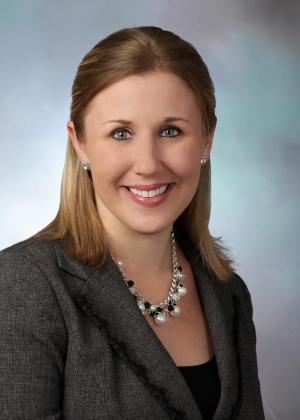This week, Global Update sat down with new Vice President and Chief Operating Officer Kimberly Atkins to discuss priorities and programs the U.S. Grains Council (USGC) has planned for the remainder of the year. Atkins has served in several roles with the Council over the past 10 years and was named to her new role this summer following the retirement of Erick Erickson.
Q: Kimberly, congratulations on being named vice president. As director of global programs and now as vice president, you have a broad view of the Council’s activities around the world. Things are always changing but, as we approach 2016, what do you see as the top priorities for the Council?
A: As you say, things are always changing – and sometimes they change quickly, so adaptability and flexibility are at the top of the list. Our work is about overcoming barriers to trade, buyer-seller interaction and building new demand for coarse grains and co-products.
We have undertaken, along with industry partners, a new ethanol export initiative that has tremendous potential. China is continuing to evolve as a market for our products, and we are managing that very carefully. We are engaged in many ways in the biotechnology debate and, of course, we continue to be an active participant in the ongoing Trans-Pacific Partnership (TPP) and Transatlantic Trade and Investment Partnership (T-TIP) negotiations.
In addition, we are stepping up our activities in the Western Hemisphere where we have an inherent logistical advantage. Our top priority in 2016 is to increase exports of U.S. coarse grains in all forms.
Q: That’s a full plate. The ethanol export initiative is a long-term project, now in its second year. What benchmarks are you looking for in the remainder of 2015?
A: We hit the ground running this year with our ethanol market development program. Together with our partners, the Renewable Fuels Association (RFA), Growth Energy and USDA’s Foreign Ag Service, we developed country specific strategies in a handful of targeted markets.
In China, we hosted a very successful round of environmental seminars and are planning more in the future.
We have also hired a consultant in Japan who will be working with the Council and its partners to keep us engaged as that country begins major revisions to its energy policy.
These are just a few of the many projects that are ongoing for the remainder of this year with plans underway to significantly ramp up our ethanol market development program in 2016.
Q: The restoration of diplomatic relations with Cuba has been a big story this year. How does this fit in with the Council’s ongoing activities in the Caribbean Basin and Latin America?
A: The Council is very optimistic about a number of opportunities in the Western Hemisphere that have been brought about by trade agreements or changes in U.S. policy. The restoration of diplomatic relations with Cuba is an exciting first step towards the normalization of trade relations.
Imported agricultural products are a necessity for the survival of Cuba’s food and agriculture industry. The imposed embargo, which hinders the ability of the United States to export agricultural products to the island nation, puts us at a significant disadvantage to our competitors.
The United States does have an inherent logistical advantage in serving the Cuban market, and when financing issues can be resolved – probably best by lifting the entire embargo – we’ll be in a better position to win back a good portion of Cuba’s market share. However, that’s a long-term prospect and one that will require continued changes by our government.
Q: An organizational challenge for the Council is adapting its international structure and staff to meet changing markets and seize new opportunities. Do you see any big changes in the near future?
A: The Council’s network of overseas offices as well as strategically-placed country representatives allows us to be flexible and respond quickly and effectively to new opportunities. We have highly-trained employees and consultants who are experts in their individual fields, and who can and do cover broad geographic areas.
We are also planning to increase staffing in the Mexico office with an assistant director position that has been funded by the Missouri Corn Merchandising Council. In addition, over the past two years, the Iowa Corn Promotion Board has supported us in an additional staff position in China, a critical market for U.S. coarse grains and co-products. These two positions will help the Council be well positioned to meet new opportunities and develop new demand for U.S. corn, barley and sorghum as market dynamics change.
Q: You’ve been around the Council for more than 10 years. What are the sensitive issues?
A: I certainly do know where the minefields are, and you are not going to draw me into a discussion of Iowa, Iowa State, Nebraska or Ohio State football. I went to the University of Montana, so I have an easy out there.
Beyond that, the Council exists to push the envelope and find wins in places that aren’t necessarily sure bets. That means taking prudent risks and making judgment calls every day. We don’t do this alone – we have a wealth of experience in our members and on our Advisory Teams. So while we do take risks, we do it with our eyes open and with a long-term perspective. We’re in business to build tomorrow’s opportunities, and that’s as exciting to me today as it was 10 years ago when I first came aboard.


